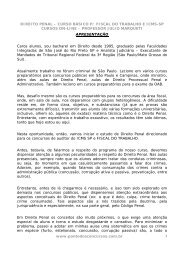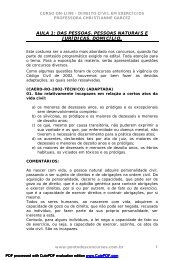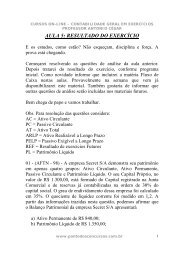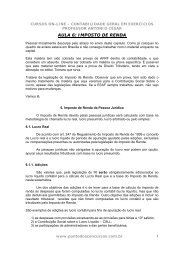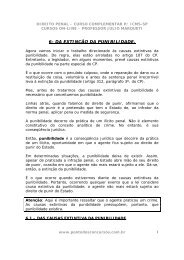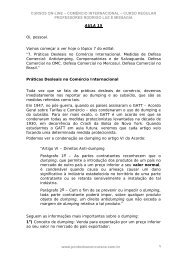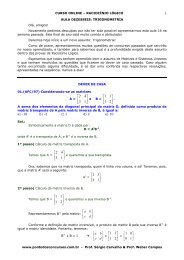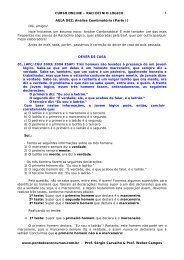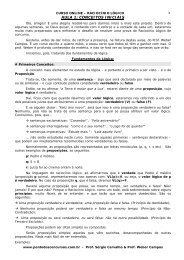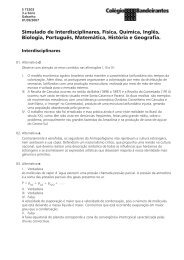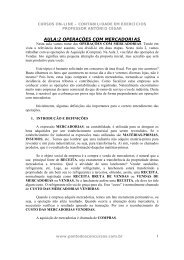simuladao-enem-provas-gabaritos - 2008
simuladao-enem-provas-gabaritos - 2008
simuladao-enem-provas-gabaritos - 2008
Create successful ePaper yourself
Turn your PDF publications into a flip-book with our unique Google optimized e-Paper software.
Inglês<br />
Thin gruel and hungry stomachs<br />
May 22nd <strong>2008</strong> | Tokyo<br />
From The Economist print edition<br />
Japan plans a tiny dent in its rice stockpiles<br />
On the outskirts of Tokyo sits a huge, grey building<br />
with concrete walls nearly one metre thick. The<br />
Fukagawa fortress, with its sophisticated security<br />
and climate-control systems, houses 50,000 tonnes<br />
of rice, part of a 2.3m-tonne stockpile, kept off the<br />
market by an oddity of the world rice trade.<br />
When the World Trade Organisation forced Japan to<br />
open its rice market in 1995, the government<br />
started buying up the imports, mainly from America,<br />
to protect domestic farmers. Some is used in<br />
processed foods or as animal feed. Some is fed to<br />
prisoners. Only a tiny amount goes in food aid<br />
abroad.<br />
As the soaring rice price prompts a vicious circle of<br />
food shortages and export bans, that looks<br />
embarrassingly untenable. But simply selling the rice<br />
is not possible: under WTO rules, it may not be<br />
re-exported without the permission of the original<br />
country.<br />
American and Japanese officials are still haggling;<br />
Japan wants to send 200,000 tonnes to the<br />
Philippines. That's nice. But it could go a lot further.<br />
A new report by the Centre for Global<br />
Development, a think-tank in Washington, DC,<br />
reckons freeing stockpiled rice in Japan and other<br />
Asian countries could halve world prices. Hungry<br />
people would certainly like that; American farmers<br />
probably would not.<br />
10<br />
30. O texto:<br />
a. informa que é estimado em 50.000 as toneladas<br />
de arroz estocado nas casas em função dos<br />
preços altos do produto no mercado<br />
internacional e receio de desabastecimento local.<br />
b. considera uma atitude absurda o fato de que, no<br />
Japão, o arroz é dado, de forma racionada, a<br />
animais e prisioneiros, enquanto uma grande<br />
quantidade é destinada à ajuda externa.<br />
c. culpa a Organização Mundial do Comércio por<br />
ter forçado o Japão a abrir o mercado do arroz<br />
em 1995, ao mesmo tempo que acusa o Japão<br />
pelo exagero de ter construído uma fortaleza<br />
para estocar o produto.<br />
d. destaca que, de acordo com o Centro para o<br />
Desenvolvimento Global, o preço mundial do<br />
arroz poderia cair pela metade caso o estoque<br />
fosse liberado no Japão e em outros países<br />
asiáticos.<br />
e. evidencia o espírito humanitário do Japão em<br />
querer ajudar países em necessidade ao mesmo<br />
tempo em que critica o excesso de burocracia<br />
local para esses procedimentos.<br />
31. A impossibilidade de vender o arroz estocado no<br />
Japão deve-se:<br />
a. à intransigência dos Estados Unidos em alterar as<br />
regras vigentes e à política de manter os preços<br />
altos para proteger os produtores locais.<br />
b. ao fato de que, de acordo com as regras da<br />
OMC, o arroz não pode ser re-exportado sem a<br />
permissão de quem vendeu o produto.<br />
c. à pressão internacional, diante da crise mundial<br />
de alimentos, e é motivada por interesses<br />
humanitários.<br />
d. ao fato do Japão proteger os produtores locais.<br />
e. ao receio do desabastecimento, visto ser o arroz a<br />
base da alimentação.<br />
32. In the last paragraph, you read: "Hungry people<br />
would certainly like that; American farmers<br />
probably would not." That refers to:<br />
a. reducing the world rice prices by 50%.<br />
b. freeing Japanese stocks of rice.<br />
c. planning a tiny dent in Japan's rice stockpiles.<br />
d. sending 200,000 tonnes of rice to the Philippines.<br />
e. freeing the international market from such an<br />
oddity of the world rice trade.



